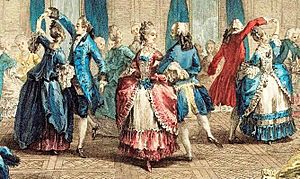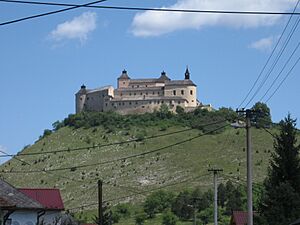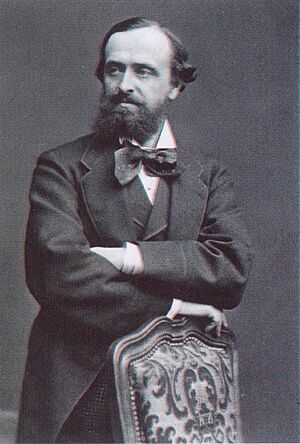Aristocracy (class) facts for kids
The aristocracy is a special group of people who historically held a lot of power and influence. They were often seen as the "ruling class." In many places, like old Europe, these families had special titles, like "Duke" or "Count," and their status was passed down through their family, from parents to children. This is called "hereditary."
Sometimes, being an aristocrat meant you had special rights or privileges. They were usually just below the king or queen in a country's social ladder. In some ancient societies, like ancient Greece or ancient Rome, aristocratic status came from being part of a military class. In other places, like some African societies, aristocrats might have belonged to important religious families.
In modern Europe, the aristocracy often refers to the nobility, a specific class that grew during the Middle Ages. However, the word "aristocracy" can also describe other powerful groups or leaders, especially in older societies or those outside Europe. Some big changes in history, like the French Revolution, led to the end of the aristocracy's special powers.
What Does the Word "Aristocracy" Mean?
The word "aristocracy" comes from Ancient Greek. It combines two Greek words: aristos, meaning 'excellent' or 'best', and kratos, meaning 'power'. So, "aristocracy" basically means "rule by the best."
In medieval times, royals and aristocrats were sometimes called "Blue Bloods." This was because they were thought to have a special kind of blood that made them different from common people. In most cases, aristocratic titles were, and still are, passed down from parents to children.
The term aristokratia was first used in Athens, an ancient Greek city. It described young citizens who were leaders in the army. People believed that these leaders were "the best" because bravery in battle was highly valued in ancient Greece. This quality was called arete.
From the ancient Greeks, the idea of aristocracy spread to Europe during the Middle Ages. It came to mean a similar group of military leaders whose status was passed down through their families. These people were often called "the nobility." Like in ancient Greece, this group of privileged men and women used their family connections to armies to present themselves as the most "noble" or "best" in society.
See Also
- Gentry
- Gentry (Landed - China)
- Gentry (Landed - Poland)
- Gentry (Landed - United Kingdom)
- Honorifics
- Monarchy
- Capitalism
- Nobility
- List of fictional nobility
- Upper class
- Imtiaz (Egypt)
- Chieftaincy (Nigeria)
- Old money
- Peerage (United Kingdom)
- Royal and noble ranks
- Styles (manner of address)
- Styles (royal and noble)
- Styles (United Kingdom)
- Titles
- Titles (false)
- Titles (hereditary)
- Titles (honorary)
- Social capital
- Social environment
- Symbolic capital
- Honour
- Moral responsibility
- Yangban (Korea)
- Kuge (Japan)
- Zamindar or Jenmi (India)
pl:Arystokracja
 | Stephanie Wilson |
 | Charles Bolden |
 | Ronald McNair |
 | Frederick D. Gregory |




